Is It Easy to Find a Medical Supply Specialist Right Now
Doctors Supplies: A Full List of Medical Equipment Every Healthcare Office Needs
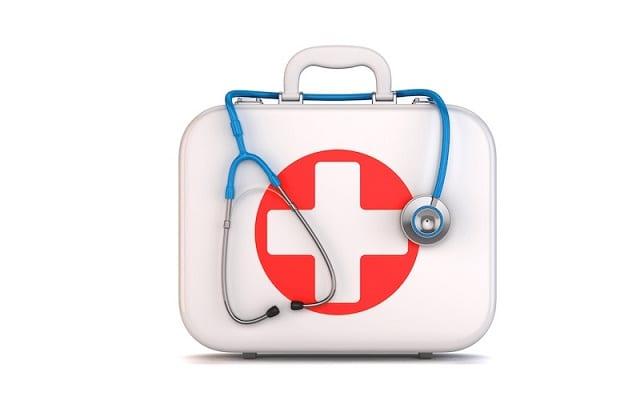 At Medical Call Service we know that running a clinic takes time, patience, staff, and resources. Some of those you need to order in advance. Here's a list of basic doctor supplies every medical office should have.
At Medical Call Service we know that running a clinic takes time, patience, staff, and resources. Some of those you need to order in advance. Here's a list of basic doctor supplies every medical office should have.
There areover one millionhealthcare physicians working across the United States at the moment. These doctors work in a variety of roles, from surgeons to psychiatrists to general practitioners.
And patients across the United States spenda lotof time in general surgeries. In fact, a general physician receivesaround 3,500visits from patients every year.
To provide the best possible care for these patients it's extremely important that your doctor's office has all the right kit. Without basic medical supplies, you may find yourself unable to help a patient in need.
Not sure what your surgery needs? Then you're in the right place! Find out below which doctor supplies should be on your list.
1. An Autoclave
Doctors' offices are where people go when they get sick, so it's natural that they see their fair share of germs. Controlling the spread of infection is extremely important to stop the growth of infections. This includes controlling the spread of hepatitis B and C, HIV or human papillomavirus.
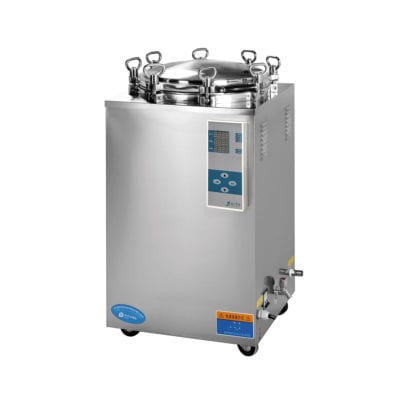
This is why an autoclave is a must-have on any hospital supplies list. An autoclave is a container that can heat equipment at high pressures and high temperatures. This makes it the most effective method of sterilization in the business.
To properly clean any medical equipment you should clean it then disinfect it before sterilization. You should sterilize any instruments for:
- Three minutes at 279°F
- Ten minutes at 264°F
- Or fifteen minutes at 155°F
You also need to keep careful records of your autoclave's maintenance in your files and hold onto these for at least eleven years.
2. An Automated External Defibrillator
You are probably familiar with automated external defibrillators, or AEDs, even if you don't know the name.
This life-saving equipment can access a patient's heart rhythm if they suffer a sudden cardiac arrest. If necessary, the defibrillator will also administer an electric shock to help regulate the heartbeat.
While this might seem like an extraordinary task, the beauty of AEDs is that they're very easy to use. They're also portable so if you have one in your office, you can take it to the patient to help them quickly.
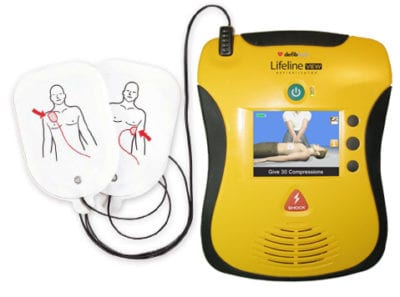
3. Basic Diagnostic Equipment
No medical supplies list would be complete without this basic diagnostic equipment:
- A blood pressure monitor
- Thermometers
- Blood test kits
- A pulse oximeter
- Stethoscopes
- Ophthalmoscopes
- Otoscopes
- Colposcopes
- Eye charts
- A reflex hammer
You should also ensure that you have a procedure and examination tables to suit all your patients. This includes tables with adjustable heights and support systems. Keeping a step in your office is a useful way to help patients up onto a bed that doesn't have an adjustable height setting.
Specialized lighting is also important for conducting a thorough exam for any patient.
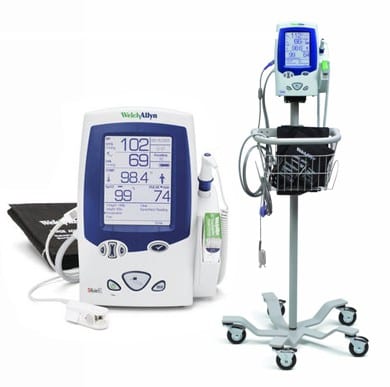
Every doctors' office should also feature weighing scales and a height measure. These should be top of the range to ensure that they are accurate. In fact, most doctors buy theirscales from specialized medical suppliers, not standard retailers.
4. Procedure Equipment
Sometimes you may need to perform minor procedures on a patient, such as cleaning or dressing a wound. So you should always have plenty of the following:
- Adhesive bandages
- Antiseptic wipes
- Cotton wool pads and swabs
- Gauze
- Hypodermic needles
- Paper towels
- Tissues
- Tweezers
Remember to store these supplies hygienically and don't use any single-use supplies that have already been opened.
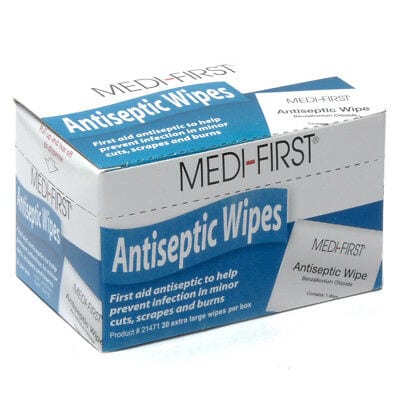
5. Emergency Equipment
Every now and then a routine doctor's appointment takes a turn and a patient requires urgent medical assistance. When this happens it's important to have emergency medical equipment on hand.
You should have:
- Aspirators
- Oxygen canisters
- Oxygen masks
- A resuscitation bag or mask
- Airway suction unites
- Foil blankets
- A trauma board
- Ventilators
These items on their own might not be enough to save a patient. But they will buy them valuable time until you can get them to a hospital.
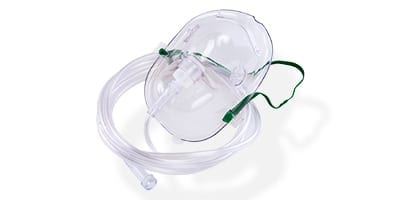
6. Laboratory Doctor Supplies
Sometimes basic diagnostics won't be able to tell you everything you need to know. When this happens you may need to turn to laboratory analysis for a more comprehensive view of your patient's condition.
Laboratory medical equipment lists should include:
- A centrifuge
- Urine analyzers
- Chemistry analyzers
- Glucose analyzers
- Microscopes
- A fridge and freezer for storing specimen
Some offices may choose to outsource some diagnostic tests. But having these supplies on hand will let you deliver quick and accurate diagnoses.
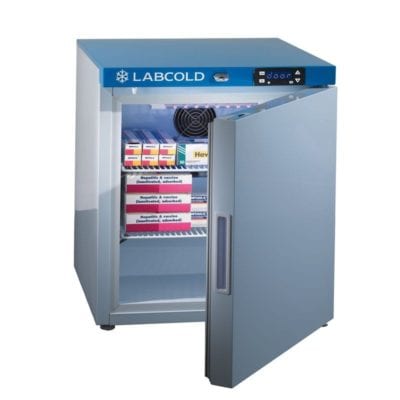
7. Protective Equipment
Another key way to stop the spread of infections is by wearing appropriate protective equipment. You should use this during examinations and when carrying out any procedures.
You need a good supply of disposable gloves, aprons, and face-masks. You should only use these once and then get rid of them safely, so you'll need plenty of them.
Eyewear is also vital as it stops any infection from entering your body through your eyes. Make sure you have a couple of pairs of these and always clean and sterilize them between wears.
Having a plentiful supply of hand sanitizer is also a good idea for any doctor's office. You should have this conveniently located in every room so people can use it easily.
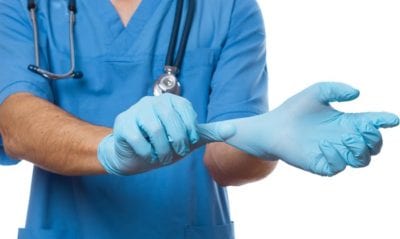
8. An ECG Unit
An ECG unit is an important piece of equipment that helps to detect irregular heart activity.
It performs an electrocardiogram, which measures the electrical activity of a patient's heartbeat. Over a period of time, the unit records a patient's heartbeat and prints out the rhythm. This means you can quickly spot any irregularities.
This is an extremely important piece of equipment as an irregular heartbeat can be a sign of serious underlying health problems. You can use this information to refer them to a specialist for further treatment.
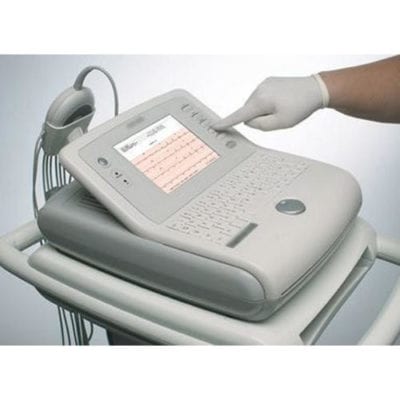
9. Specialized Equipment
You might also want to consider investing in some specialized equipment for your surgery. You will probably need only one set of each apparatus for your medical equipment listing, as you probably won't need to use them on a daily basis.
Some specialized equipment you should consider getting includes:
- A spirometer for monitoring lung capacity
- A fetal monitoring machine
- An X-ray machine
- An ultrasound machine
A lot of these pieces of equipment are also readily available at a hospital so if you have one nearby you might decide you don't need them. But having them in your office will allow you to diagnose and treat patients more efficiently.
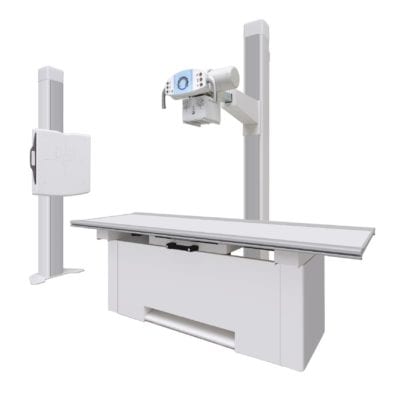
10. Administrative Equipment
The administration is a huge part of running a professional doctor's surgery. Having up-to-date equipment is vital to keep the surgery running smoothly.
Communication is key in a doctor's office. Patients need to be able to get in touch with the office to book, change or cancel appointments.
You need phones that can queue calls and a decent phone line. Or, to make things even smoother you might decide tohire a medical answering service.
You'll also need computers and printers in each office and at the reception. These will be useful for accessing medical records and printing prescriptions. Some offices also let patients make appointments online.
Having an electronic announcement board in your waiting room is a good idea so patients know when to go in for their appointments. And you can save your receptionist time by installing an electronic login system.
Finally, there should be a clock in every room of the surgery. These are vital to keeping things running on time and ensuring every patient gets seen.
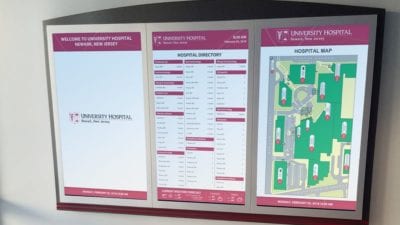
11. Storage Equipment
As you can tell there's a lot you need to kit out your doctor's office so you need some good storage.
Clearly marked cabinets and shelving are a must. This will make it quicker and easier to find exactly what you need.
You should also ensure that you have proper disposable systems throughout your office. Bins, sharps containers, and safe chemical disposal are a must-have for patient and staff safety. You should also ensure that you have proper janitorial equipment to hand to clean up any spills throughout the day.
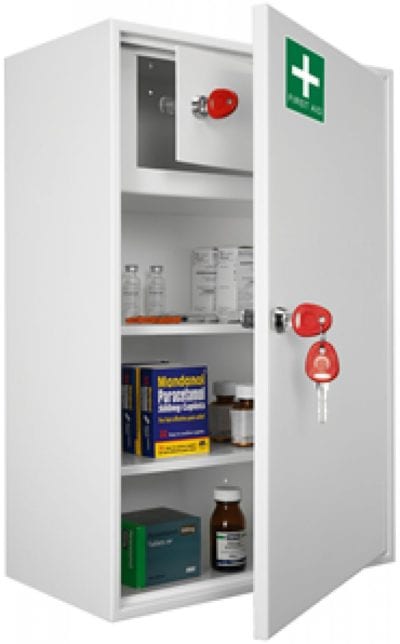
12. Supplies to Ensure Patient and Staff Comfort
Last but by no means least, you want your office to be a comfortable place for your staff and patients.
Comfortable furniture in your offices, waiting room and test rooms are a must. If a patient has to wait for their appointment you don't want them coming in grumbling about the waiting room!
Having water coolers placed throughout your surgery is also key to keeping patients hydrated while they wait. This can help to avoid unnecessary fainting episodes, which could delay your day.
It's a good idea to have a wheelchair or two on hand in case a patient suddenly needs assistance. And every office should have clean blankets for any at-risk patients.
To keep your staff happy, put effort into stocking the break room. Appliances such as microwaves, toasters, and coffee makers are a must. You should also ensure that the fridge is big enough to accommodate all of your staff's food.
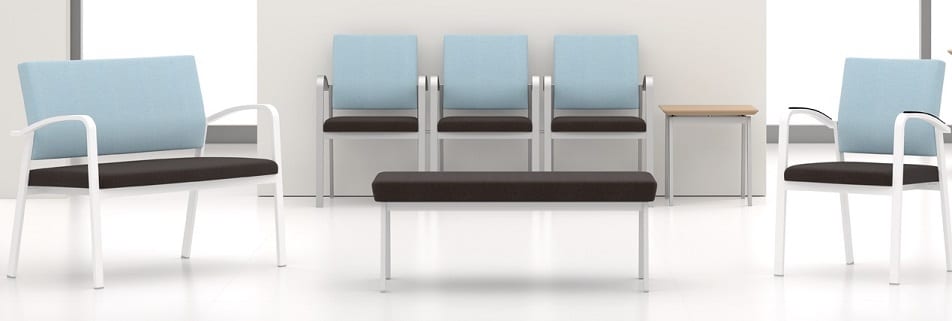
You're Almost Ready To Go! Do You Need a Medical Answering Service?
No office is complete without these doctor supplies so make sure you kit yours out thoroughly. These will help you run an efficient, welcoming office that looks after both its staff and its patients.
For more help making your doctor's office the best it can be, consider hiring a medical answering service. Get a quote below!

Source: https://medicalcallservice.com/list-of-supplies-medical-offices-need/
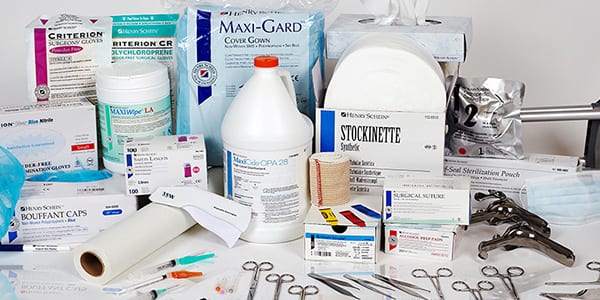
0 Response to "Is It Easy to Find a Medical Supply Specialist Right Now"
Post a Comment